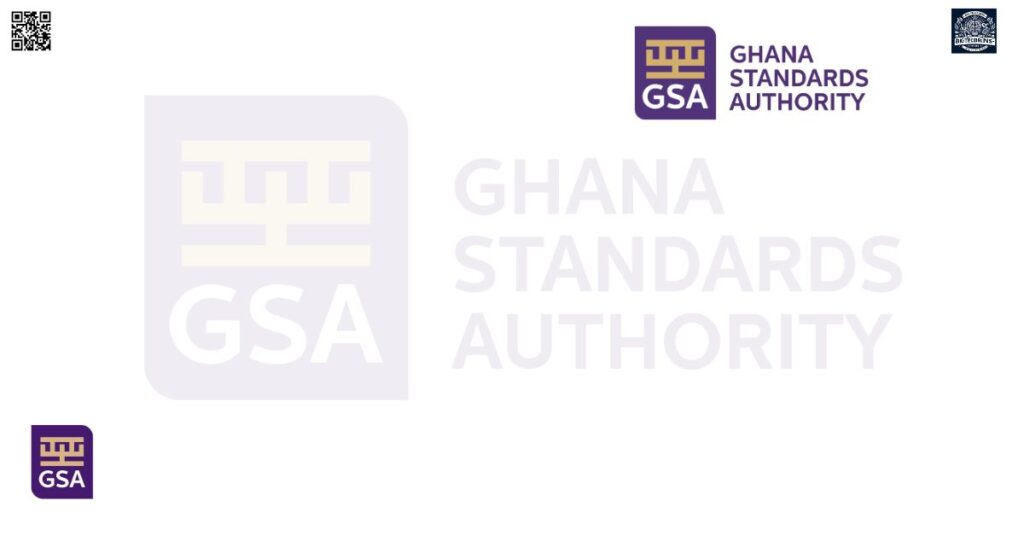Historical Overview
The Ghana Standards Authority (GSA) was established in 1967 as the Ghana Standards Board under the Standards Decree (NRCD 173). It was later renamed the Ghana Standards Authority to reflect its expanded mandate in ensuring the development and application of standards in the country.
The GSA’s formation marked a significant milestone in Ghana’s industrialization and trade efforts. Initially focused on industrial standardization, its scope has grown to include metrology, conformity assessment, and certification to support economic growth, public health, and safety.
Operations
The GSA’s operations centre around its primary mandate: developing, promoting, and enforcing standards for goods and services. Its core functions include:
Standard Development:
- Drafting and implementing national standards for products and services to enhance quality and safety.
Conformity Assessment:
- Conducting testing, inspection, and certification services to ensure compliance with standards.
Metrology Services:
- Providing calibration, verification, and measurement services to support trade and industry.
Market Surveillance:
- Monitoring and enforcing compliance with standards on goods and services in the marketplace.
Training and Consultancy:
- Offering capacity-building programs and technical support for businesses.
Constitutional Backing
The Ghana Standards Authority derives its legal mandate from the Ghana Standards Authority Act, 2022 (Act 1078), which replaced previous legislation to modernize and expand the Authority’s operations. The Act aligns GSA’s mandate with international best practices and enhances its role in facilitating trade and protecting consumers.
Offices and Organizational Structure
The GSA operates through several specialized departments and regional offices across Ghana. Its organizational structure includes:
Standardization Directorate:
- Focuses on the development and review of national standards.
Conformity Assessment Directorate:
- Oversees product testing, inspection, and certification.
Metrology Directorate:
- Manages calibration and measurement services.
Market Surveillance Directorate:
- Conducts market monitoring and enforcement activities.
Corporate Services Directorate:
- Handles administrative, financial, and HR functions.
Regional Offices:
- GSA maintains regional offices to extend its services nationwide.
Leadership
The GSA is governed by a Board of Directors, appointed by the government, and headed by a Director-General. The current leadership structure includes:
Director-General:
- The chief executive officer responsible for day-to-day operations and strategic direction.
Deputy Director-Generals:
- Oversee specific operational areas such as metrology, conformity assessment, and standardization.
Board of Directors:
- Provides policy guidance and oversight.
How They Function
The GSA functions through a combination of policy formulation, stakeholder engagement, and enforcement activities. Key operational methods include:
Collaboration:
- Working with industry stakeholders, government agencies, and international bodies like ISO and IEC.
Public Consultation:
- Engaging with the public during the development of standards to ensure relevance and acceptance.
Enforcement:
- Conducting inspections and imposing sanctions on entities that violate standards and regulations.
Accreditation:
- Providing accreditation services to laboratories, certification bodies, and inspection bodies.
Overseers and Method of Appointments
The GSA operates under the oversight of the Ministry of Trade and Industry.
- The Board of Directors is appointed by the President of Ghana, in consultation with the Council of State.
- The Director-General is also appointed by the President, based on merit and relevant experience.
Institutions That Work With or Under GSA
Several institutions collaborate with or operate under the purview of the GSA, including:
Food and Drugs Authority (FDA):
- Ensures the safety of food, drugs, and cosmetics in line with GSA standards.
Customs Division (GRA):
- Enforces standards at Ghana’s entry points.
Environmental Protection Agency (EPA):
- Works with the GSA to ensure environmental standards.
National Accreditation Body (NAB):
- Provides accreditation in conformity with GSA guidelines
References:
- Ghana Standards Authority Act, 2022 (Act 1078).
- Official Website of Ghana Standards Authority: www.gsa.gov.gh
- Ministry of Trade and Industry (Ghana): www.moti.gov.gh
- ISO and IEC Collaboration Reports with GSA.

